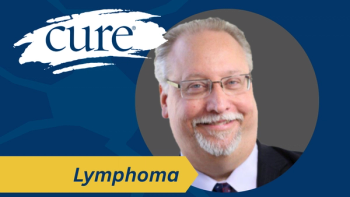
Managing Quality of Life in R/R Follicular Lymphoma
Ajay Gopal, MD: Quality of life is a very important consideration. There are many cancers where they are imminently life threatening and we have to be extremely aggressive in treating them to prevent them from being fatal. But follicular lymphoma in most cases does not shorten one's life. And that really brings us back to quality of life. We don't want to sacrifice longevity necessarily, but quality of life is a very important consideration. And I talked to patients about this. Much of this is really in the eye of the beholder.
But because we have so many options, we can tailor treatments to patients' preferences in terms of quality of life. Some folks would prefer to have a shorter duration but higher intensity treatment that might give them time off therapy. This might be an approach using chemotherapy, for example, which might give them time off therapy. Other folks might say, “Well, I don't mind chronic therapy that might go for years and years, even if I have some low-level side effects. I just don't want higher side effects, even if it's for a shorter period.”
That might lend people toward taking one of these oral therapies that go on indefinitely. So quality of life is a major part of the discussion in terms of the life strategy or management strategy for treating folks with follicular lymphoma.
Part of this is emphasizing that we want our patients to be empowered, to feel they can ask questions, to ask detailed questions about, “Well, it's a pill, but pills have side effects, too. What would I expect in terms of side effects,” and share their preferences with their provider. I think if treatment is being offered, it's important to understand what are the other options? Are there any clinical trial options?
Is there someone you might refer the patient to if their provider does not see lots of folks with follicular lymphoma, to get an opinion to make sure we're on the right track? And I think particularly in follicular lymphoma, where there are many options, where folks generally do well, and where it's mostly a nonurgent situation, it's not a split decision where someone has to come in and say, “Oh, this scan looks worse. You have to start this other therapy tomorrow.”
That's rarely the case in follicular lymphoma. There's plenty of time to think about it, to review different options, weigh the pros and cons, seek out second opinions, and make sure that you're on the track that's right for you.
Transcript Edited for Clarity




